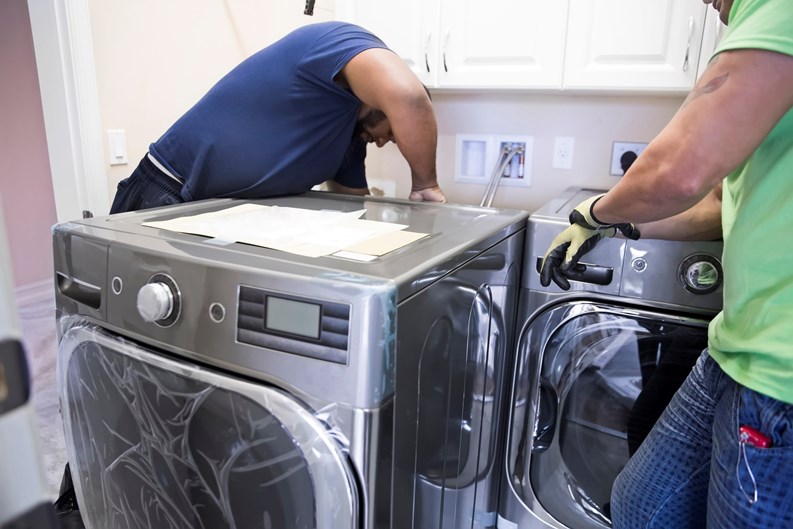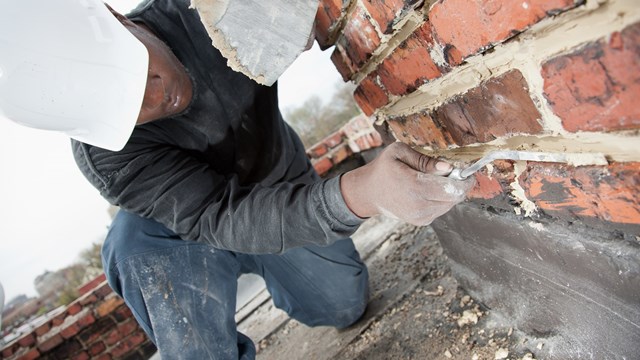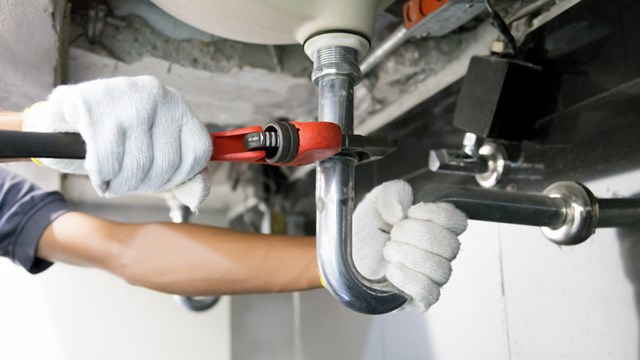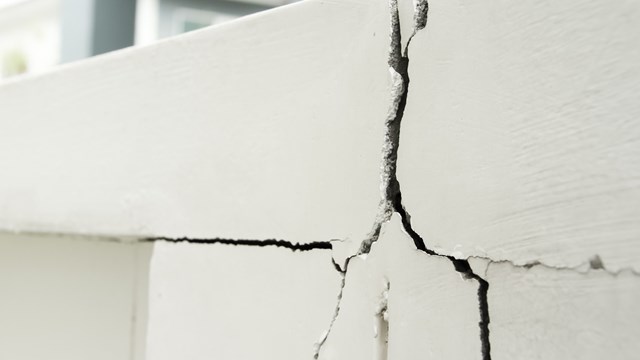Can you imagine living in a building or association that doesn’t have a laundry room? These days, having on-site laundry facilities for residents isn’t an amenity – it’s a necessity, and keeping yours functional and well-maintained is just as important as keeping the boiler or elevators running.
Nearly all multifamily laundry rooms are managed and maintained by outside laundry contractors – they take care of the machines, service them when necessary, and collect the money from the machines.
“In the past, the machines were quite simple,” says Daniel Schwartz, Vice President of Fowler Laundry Solutions in Union, New Jersey. “There were no computers, and everything was basically manual.”
No More Quarters
My, how times have changed! Recent years have seen a lot of improvement and innovation in how all these tasks are managed. Thanks to the advent of computerized washers and dryers, as well as internet-connected equipment and notification systems, the tedious search for quarters and traipsing back and forth to the basement to check the status of clothes is thankfully, a thing of the past.
“It’s no longer a coin business,” says Barry Heller of Hercules Corp. in Hicksville, New York. “It’s all smart cards, a rechargeable card that residents keep in their wallet.”
Smart cards work much like a pre-paid debit card; residents load however much value onto their laundry card, and then all they need to do is insert the card into the reader on the washing machine or dryer. If there is enough money on the card, it signals the machine to start. If there isn’t enough money, residents have different options for adding value onto the card.
Smart cards also help to detect fraud. “For a lot of managers, it’s become another way of detecting illegal activity,” says Stanley Marx, Director of Development at Aces Laundry Services LLC in Hartsdale, New York. “If there’s a name that keeps coming up and they don’t live in that building, it gives the landlord insight as to who is using their machines.”
Newer-model washers are also more efficient than ever before, as new federal mandates for water conservation have come into effect. “Modern top-load machines are almost as water efficient as front-load washers from five years ago with almost 40 percent reduction in water usage vesus the older machines,” says James Wigfall of CSC ServiceWorks in Florida. “Modern front-load machines are still the most water efficient. All high-efficiency machines require changes in soap usage by residents. Low water and high soap are incompatible, which requires residents to change some old habits.”
Carlos Sessarego, District Sales Manager for Mac-Gray/CSC ServiceWorks, also in Florida, says the biggest area for technology change is in Internet connectivity, which opens up options for bank card payment, and self-diagnostics of equipment for speedier service.
Change Point from Mac-Gray is a system that allows residents to submit a service request without ever picking up the phone, and Coinmach offers an app in which service requests can be submitted by smartphones just by taking a picture of the laundry machine ID plate.
“For service and maintenance, modern commercial equipment has digital controls and self-diagnostics which can be monitored online,” Wigfall says. “A 24-hour heartbeat of the machine is maintained, and when a hiccup occurs, the system auto-generates a service notice.” He adds that much like the credit/debit card systems that are ubiquitous at gas stations, similar card-based payment systems can be integrated with laundry equipment and provide users a choice of either coins or bank cards as method of payment.
If a card is lost or stolen, it also makes it easier to replace. “If they lose their card, we also know exactly how much that card had on it and we send them a new one with the same amount of money that they had on it originally,” says Marx.
Laundry Room Tech
Smartphone apps have revolutionized many aspects of everyday life – and the laundry room is no exception. By simply downloading whichever app their building has chosen, residents can keep tabs on wash and drying cycles, without having to leave their apartment.
“When a laundry room is Internet-connected, residents can see machines in use, and get notices for cycles completed without ever leaving their home,” says Wigfall. “Additionally, email and text notices allow residents to know when it is time to remove clothes promptly and allow next user convenient access.” Connected machines also self-monitor 24/7, enabling repair personnel to be on the scene to fix the issue before it inconveniences residents.
Marx agrees. “We’re able to reboot machines from a distance,” he says. “A lot of things we can do on our own from the office, which means I’m not having to send a mechanic out every time there’s a call.”
Looking down the road, Marx sees app technology taking the laundry industry even further. “With the apps, the residents won’t even need to carry a card around,” he says. “They will just be able to wave their phone at the machine. I don’t think people are ready to accept that yet, but it’s definitely on the horizon. This makes a big difference to the building’s bottom line in water savings. It makes a big difference as far as economy to the building. Also, the reduction of water has cut down on the amount of suds and drainage issues. As far as the actual washability, I’ve heard about machines being developed that are going to [use] sound waves for cleaning, but I don’t see it in my lifetime.”
While cleaning your clothes using sound waves might still sound like something you saw on the futuristic cartoon The Jetsons, it’s important to note how far laundry machines have actually improved over the years.
Let’s Get This Laundry Room Started
The first step for buildings in need of a new or upgraded laundry room is to contact a laundry company for a site visit and a proposal.
“The first thing we do is see what the infrastructure looks like – such as the drainage and electrical – and how many apartments there are,” says Schwartz. “We also need to know the demographics of the building. If there are more families than seniors living there, the room is going to need more equipment.”
Most laundry contracts are typically written for anywhere from seven to 10 years. “For us, the length of the contract depends on the financials and the capital investment we made in order for us to make a profit and repay our initial costs up front,” says Schwartz.
Once a contract is signed on the dotted line, the work has just begun. “It’s not the kind of thing where we put the machines in, then goodbye, so long, and good luck,” says Marx. “It doesn’t happen that way. We stay in constant contact with our agents. What’s going on? Are you happy? Are there any issues? They’ll say, ‘You know what? The room is starting to look a little tired.’ We want the room to be bright, shiny, and safe. Toward the end of the lease, we’ll give them new equipment if it makes sense. In most cases, it does.”
While the laundry room is an amenity for the residents, it’s often profitable for the building as well. Buildings make money on the laundry room by earning a percentage of the revenue that the laundry company has collected.
“It just all has to be factored in and paid for within the laundry agreement, similar to adding options to a car purchase,” Wigfall says. “In some cases, laundry service companies are able to provide decorating allowances and incentives or signing bonuses. Those are more common with larger communities in which residents are not the owners.”
The laundry partner provides all equipment, service repairs, preventive maintenance, and the owner/HOA provides and pays for utilities and housekeeping,” Wigfall says. “Internet fees and bank fees are typically deducted from gross income. Typically, the laundry provider pays sales or use tax on behalf of the owner, and deducts those taxes and fees from rent paid. This allows the HOA to focus on managing the property overall while leaving specialized services to the experts whether it is landscaping, HVAC, plumbing, electrical, payroll, or laundry room services.”
Sessarego warns that a management company needs to understand the contract in a split revenue situation, as terms such as “cycle minimum” and “wash minimum” can be misleading. He suggests comparing all contracts and proposals to understand what the true split will be.
Rental agreements are more common in buildings that don’t charge for laundry, and thus there is no monthly collection or disbursement of money. This is a pure cost to the HOA/owner, since the equipment generates no revenue, yet must be maintained. Meanwhile, a straight purchase program with or without a service plan may be the best option when the number of residents in a community is very small.
Out of Order
Of course, at some point, a machine is going to break down, and as long as the contract is in effect, it’s the laundry company’s responsibility to service them.
“We take care of cleaning the machines, and servicing them is included for the duration of the lease,” says Heller. “What we expect of the building is for the super or the resident manager to keep the room clean and inviting for the residents.”
Heller stresses that all the technology and machine advancements in the world don’t matter if the service isn’t up to par. “If a property manager is getting calls from customers at all hours of the day and night saying that half the washers or dryers are down, and a good laundry company is not fixing them, not servicing them, then what good is all the technology? If machines are not working or the machines are not serviced on time, then technology is totally meaningless,” he says. That’s why it’s important for managers and board members to keep tabs on their community’s laundry facilities, respond quickly to residents’ reports of malfunctioning equipment, and make sure that the building’s support staff stay on top of basic maintenance, such as sweeping up lint and other floor debris, replacing flickering light bulbs, and making sure the space is clean, comfortable, and safe for anyone using it.
Renegotiation
Before the contract is up, the laundry company and the manager will meet to renegotiate the terms of renewal – if indeed renewal is the goal. It’s at this time that the building can express their concerns and ask for new items in the contract.
“They may sit with the management company and discuss the machines and an extension to the duration of the contract,” says Heller. “Maybe some amenities need to be changed out in the room based on the amount of years. Maybe the tables, maybe the chairs, maybe the walls need to be repainted, things like that are all negotiated.”
Renegotiation also includes new machine. “It depends on the age of the equipment,” says Schwartz. “Also, if they want new technologies, such as remote notification, alternate payment systems or new items like new carts, etc., this will be discussed and added into the financials.”
Of course, a building might just want a bigger cut of the profits. “Sometimes their expenses go up in the laundry room and they want to cover their costs and we want to cover what we put out initially, so that will be renegotiated too,” says Heller.
The laundry industry continues to change and look for ways to improve machines, technology and, of course, service. The residents are just happy to have a place to do their wash.
Lisa Iannucci is a freelance writer/editor and a regular contributor to The South Florida Cooperator.







Leave a Comment